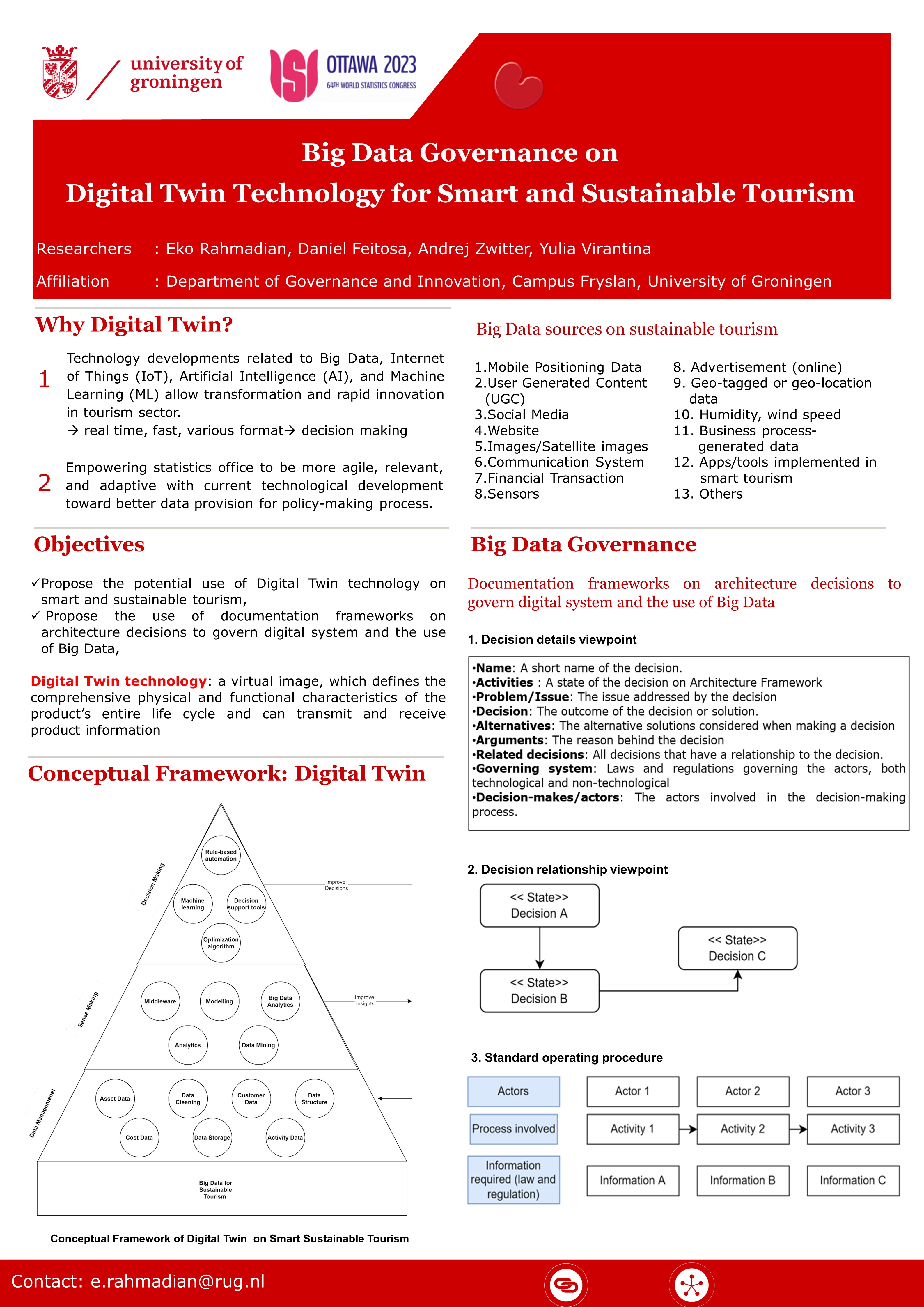Big Data Governance on Digital Twin Technology for Smart and Sustainable Tourism.
Conference
64th ISI World Statistics Congress - Ottawa, Canada
Format: CPS Poster
Keywords: bigdata,, digitaltwin, governance
Session: CPS Posters-06
Tuesday 18 July 4 p.m. - 5:20 a.m. (Canada/Eastern)

Abstract
As one of the emerging concepts in artificial intelligence (AI), machine learning (ML), and the Internet of Things (IoT), Digital Twin (DT) technology can predict system responses before they occur. DT can be described as a virtual representation that defines the comprehensive physical and functional characteristics of the life cycle of a product. DT applications have been implemented in many sectors, including smart cities. Considering the rapid growth of new ICT applications in the tourism industry, and the digitisation through IoT, we suggest that DT has the potential to be implemented in smart and sustainable tourism. By utilising Big Data source (such as: Mobile Positioning Data) and other supporting resources, stakeholders will be able to create a virtual representation of a relevant region both by analysing the flow of visitor activity and by determining the impact of their geographic and temporal patterns on other aspects and policies as a leverage on the use of Big Data for statistical products. We also believe that the use of Digital Twin technology can empower National Statistics Office to be more agile, relevant, and adaptive with current technological development toward better data provision for policy-making process. However, we are also aware that compliance with regulations and communication among stakeholders such as data scientists, data analysts, statistician, data engineers, managers and business analysts have become important issues for DT software systems when it comes to supporting organisational purposes. Therefore,we propose both a conceptual framework for DT on smart and sustainable tourism, and a documentation framework for architectural decisions as a recommended way of governing such systems, the use of Big Data, and statistical business processes. This documentation framework provides benefits that shape how each stakeholder communicates and interacts using the system whilst adhering to rules and regulations to ensure trustworthiness, accountability, and transparency. By combining the realm of political science, software engineering, and statistics, we expect to provide a contribution on the Big Data Governance both for academic-setting as well as the decision-making process.
